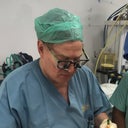Posted underFacelift q&a
Answers (11)
From board-certified doctors and trusted medical professionals
Dr. Philip K. Robb Jr., MD, FACS

PF
Dr. Philip K. Robb Jr., MD, FACS
Board Certified Facial Plastic Surgeon
Answer
Dr. Paul Vitenas, Jr., MD

PM
Dr. Paul Vitenas, Jr., MD
Board Certified Plastic Surgeon
Answer
Dr. David A. Caplin, MD

DM
Dr. David A. Caplin, MD
Board Certified Plastic Surgeon
Answer
Dr. Larry Weinstein, MD

LM
Dr. Larry Weinstein, MD
Board Certified Plastic Surgeon
Answer
Dr. Jag Chana, MD, FRCS(Plast)

JF
Dr. Jag Chana, MD, FRCS(Plast)
Specialist Registered Plastic Surgeon
Answer
Dr. Ritchie Younger, MD

RM
Dr. Ritchie Younger, MD
Certified Facial Plastic Surgeon
Answer
Dr. Kyle T. Yamamoto, MD
KM
Dr. Kyle T. Yamamoto, MD
Board Certified Facial Plastic Surgeon
Answer
Dr. R. Scott Yarish, MD
RM
Dr. R. Scott Yarish, MD
Board Certified Plastic Surgeon
Answer
Dr. Jessica Kulak, MD
JM
Dr. Jessica Kulak, MD
Board Certified Facial Plastic Surgeon
Answer
Dr. Talmage J. Raine, MD, FACS (retired)
T(
Dr. Talmage J. Raine, MD, FACS (retired)
Board Certified Plastic Surgeon
Answer
More Facelift Questions
See all Facelift Q&A
WE SEND PRETTY
EMAILS
What’s trending? Who’s turning heads? Which TikTok myths need busting? We’ve got you. No fluff, no gatekeeping—just real talk. Get our free, unfiltered newsletter.





